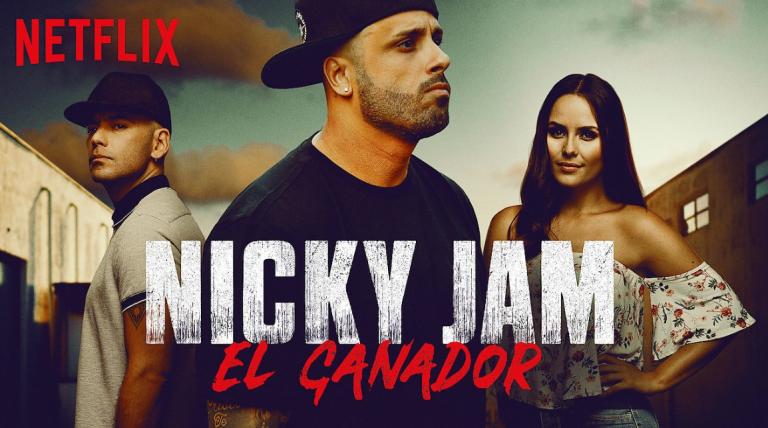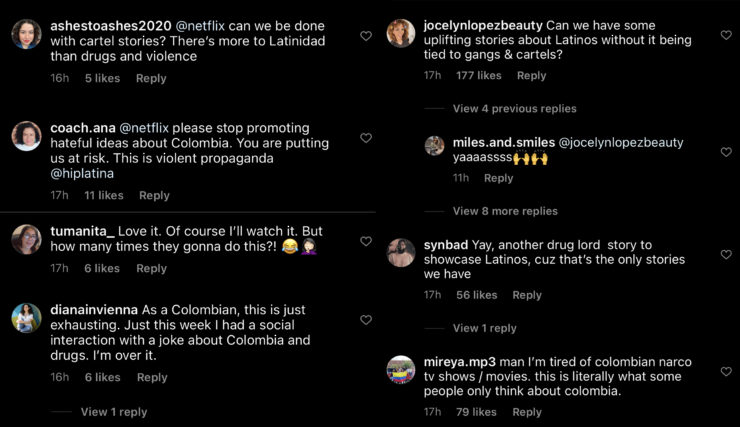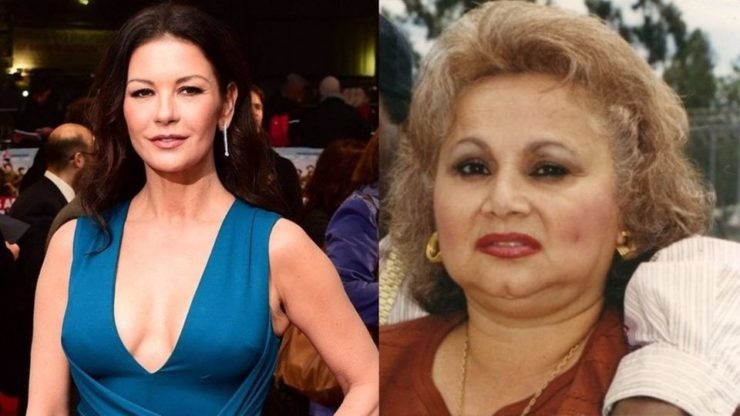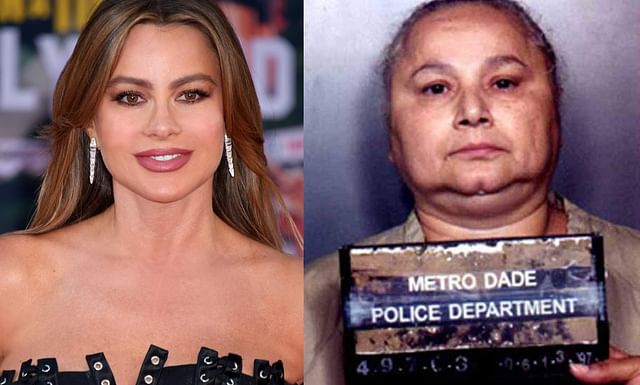A few months ago I found myself hanging out at a London apartment with a few Spanish people that I had just met, and there was one Puerto Rican guy. Throughout the night there were many conversations, but when it came to talking about him and Puerto Rico, the one thing they kept saying to him was, “Dame una pelco,” “Una pelco.”
When asked what they were talking about, they said, “In Nicky Jam’s series, El Ganador, on Netflix, he is always saying “Dame una pelco,” and then they proceeded to ask, what a pelco actually is.

Being that I’m highly triggered by drug-related stereotypes – because being Colombian, I’ve dealt with it since I was about 12 and went on a cruise in the Caribbean, and a man in an elevator asked me if my dad had massive cocaine fields after learning that I’m Colombian…or the thousands of times I’ve had someone make a cocaine reference to me while living in London, or the time someone told me I was “the worst Colombian ever” because I don’t consume any hard drugs and am actually very much against the current processes of distribution or consumption, or the fact that I never use my Colombian passport to enter or leave any country because I get stopped and heavily questioned at airports, as opposed to when I use my Italian or American passports and have a smooth journey through the airport – I interrupted the conversation and explained to the Spanish girls that Pelco is actually a painkiller called Percocet, which due to its high addiction rate, people use as a drug just like any other opioid: oxycontin, heroin, etc. I explained that some Puerto Ricans pronounce the R like an L, so that’s why the short term for Percocet, which would be perco, ended up being known as “pelco” by those who watched the series.
I was stunned that out of all the things they could have said to the Puerto Rican about his country’s many amazing things, food, artists, weather, culture, music – maybe even mention that you love Luis Fonsi’s very mainstream song, “Despacito” – instead, they thought of a very small and insignificant detail that they picked up from a Netflix series: the consumption of Percocet, and they then generalized it as something not only Nicky Jam did, but that Puerto Ricans probably do as a whole.
Based on what they were saying to the guy, they must have easily assumed that Puerto Ricans love Percocet and that it’s something every Boricua carries around in their handbag like I carry my hand sanitizer. In their heads, they were like, “Puerto Ricans eat mofongo, dance to El Gran Combo and swallow pelcos all day.” Now with Farruko, a Puerto Rican singer, who recently released a song he dubbed “Pepas,” (Pills) where the lyrics literally talk about being worry-free, doing extasis and enjoying life, the assumption by many is probably ‘yep, the Puerto Ricans definitely love their pepas.”
Now, this isn’t an attack on Nicky Jam’s series – and I’ve already spoken my piece on Farruko’s “Pepas” – because in my opinion, El Ganador is an inspiring series (I’ve watched it three times: once by myself, another with my mom and once more with my boyfriend), and I became a MEGA-fan of his after watching it. He’s brave for telling his truth so openly. But, if that single experience of the Spanish and the Puerto Rican having a conversation in London doesn’t explain the impact that media and artists behaviors and production of content have on people’s perspectives of other cultures – more specifically Latino culture – and the fact that they think that Latinos (more specifically Colombians) are walking, talking eight balls ready to lay a pile of cocaine out on any table, on-demand, then I don’t know what does.
That is why Netflix and Hollywood’s fixation on reproducing biographical or melodramatic stories about kingpins and drug lords is not only problematic but it’s old shit that needs to be flushed down the toilet – hold the fucking plunger.
From Farruko’s “Pepas,” to O.T. Genasis’ “Coco,” tone-deaf artists continue to promote the consumption and glorification of drugs, and sadly, many media outlets continue to cover and support them during these specific projects, knowing well that they have the power of informing the masses, who in turn also consume the content massively instead of boycotting content that sends unproductive messages. Misinformation and Hollywood are to blame for Anglo-America and Europe’s romanticizing of drug cartels and the war on drugs in countries such as Colombia and Mexico. Worst of all, these same artists and companies ignore Latin culture, talent, art and their internal conflicts – many which are directly fueled and financed by the drug wars and Narcoguerrillas – and all that surrounds it, except for when there is money to be made. They profit from the negativity, and they don’t event try to be discreet about it. Because they know we, the consumers, will continue to watch and listen as we historically have done.
As a Latina and a Colombian woman, living in Europe it is sometimes exhausting to continuously have to deal with stereotypes, Pablo Escobar references and people’s jokes about cocaine, but I can’t really blame them when that’s all they’re able to see and read on the screen and in the news.
Today it was announced that yet another story about a Colombian Drug Kingpin, will be produced and shown by Netflix. This time it’s about Griselda Blanco, known as the Queen of Cocaine. That nickname alone makes me sick.
I was highly disappointed to learn about the news on HipLatina, who wrote a story and posted about it on Instagram, where a big part of the comments reflected my sentiment.

Griselda Blanco was the pioneer in the trafficking of cocaine from Colombia to the United States. She created the concept known today in Spanish as ‘mulas,’ aka ‘mules’ meaning those who carry the drugs overseas, whether it be in their suitcase, in their shoes, injected into their buttcheeks, as breast implants or by swallowing them. By many, she is known as the Queen of Cocaine. Blanco was also allegedly the woman who mentored and guided Pablo Escobar into trafficking abroad from Colombia. She started the overseas business. Not him. Regardless, it should have never been, and she’s the queen of all but something glorious, and she definitely doesn’t deserve two biopics and a Netflix series.
According to a report by InfoBae, she murdered more than 250 people, three of those being her spouses, during the 60s and 70s. She was also responsible for cocaine-related internal wars between cartels in Miami. Also, she tried to kidnap John Kennedy Jr. A few years ago, she was murdered in front of her doorstep, in Medellín, Colombia, the city that my family is from.
The lady was no joke. People probably think, “wow, really? very impressive.” But Colombians don’t share the same sentiment. We ask ourselves, why after three decades, we are still talking about this and watching white guys in Hollywood – who in a chat with friends we’d refer to as ‘Los Gringos’ – who probably don’t speak a word of Spanish above “hola, como estas?” continue to tell these stories; OUR stories.
HipLatina and all outlets who thrive and profit from a Latin audience, are supposed to be promoting positive news and media about Latinos trailblazers and people who are trying to change the narrative and reputation into the one that we know is true. They should purposely ignore and avoid giving attention to stories such as Blanco’s Limited Series on Netflix, because essentially, this is just Netflix cashing in on Colombia’s neverending civil war. The story has already been told numerous times anyway. It’s old and needs to be put to rest.
In 2018 Lifetime produced a biopic on Blanco, where she was portrayed by Catherine Zeta-Jones, a Spanish woman. Just last year, the news broke that another Griselda Blanco biopic would be produced with Jennifer Lopez acting as Blanco, with the casting of JLo for the role being heavily criticized as well.

This time, Netflix avoided the criticism and went for a Colombian woman, – basically the only one in Hollywood – actress Sofia Vergara who will portray Blanco. It could be acknowledged that Vergara was given the starring role in the show, with white Hollywood taking the credit for giving us more of “the diversity on the screen” that we claim to crave, but then again, Hollywood has a total of like, 10 Latinas to pick from for any role that needs to be played by a Latina, so it was probably either Vergara or someone as controversial as JLo such as Eva Mendez, or Salma Hayek – real groundbreaking.

Casting actors incorrectly leads to incongruencies such as when Alice Braga played Teresa Mendoza in the Queen of the South or when Wagner Moura played Pablo Escobar in Narcos…both Brazilian actors who did their best, but they really didn’t have the accents, because they’re Brazilian and not a Colombian man with a paisa accent (a fundamental characteristic of Escobar’s verbiage and expressions) or a Mexican woman. Kate Del Castillo (who played Mendoza in La Reina del Sur – the Queen of the South’s Spanish-language production) could have also done the series in English. As for Escobar in Narcos, they should have cast a Manolo Cardona or Lincoln Palomeque for the role – two stellar Colombian actors.

One would think that if they are actually going to move forward and do something of this caliber, they’d do it right, accurately, and with the keenest attention to detail – which is required when topics are so delicate. More than 15 years later, Hollywood continues to produce historic mistakes such as the now-iconic and forever laughable Mr. and Mrs. Smith-style scene of a military helicopter flying above a warm and tropical Bogotá looking like a jungle surrounding a small village and bombing sounds in the background. And then, someone like me has to watch as the stupid story we’ve been trying to leave in the past is being retold once again, while also dealing with all the misinformation and incorrect stereotypes that come from the produced story without the facts being checked in the first place – because a bunch of white men up in the Hollywood Hills, many who are probably in the business of consuming the stuff that leads to those stereotypes, continue to be obsessed with these stories and the romantic narratives that they’ve built in their heads about them.

Until when will we continue to have to hear and see white Hollywood highlighting and feeding these narratives to their audiences in the US and Europe – the two biggest consumers of these drugs, which viciously fuel an array of internal conflicts and a Civil War within the countries – eat it up for breakfast and then spit it out in Colombian tourists’ faces in the form of jokes and assumptions.
The only thing people need to assume at this point is that we want nothing to do with it. We are tired of the stories, the assumptions, the commentary, and of the internal wars in our countries, because artists choose to write songs that feature and glorify drugs, and companies such as Netflix want to continue spending time, money and opportunities reproducing and recreating their fairytale version of the massive tragedy that is the five-decade-long drug war in Colombia and other Latin American countries.




